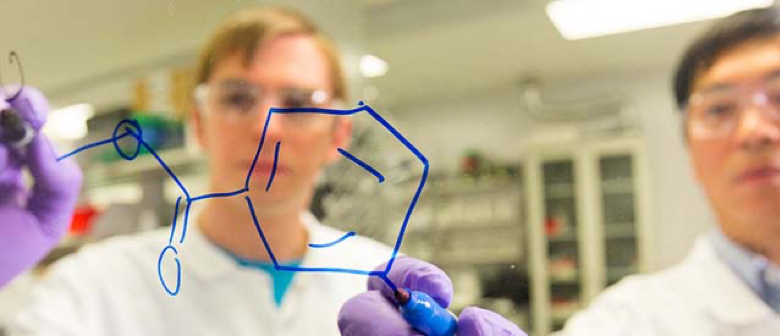Transforming the Treatment Landscape in Hematology and Oncology
At Incyte, we are harnessing breakthrough science to deliver medicines that may offer patients new treatment options. For decades, we have leveraged expertise in medicinal chemistry and biology to explore different approaches that evolve how therapies are developed and delivered to patients on their treatment journey.
Despite progress, cancer continues to be a leading cause of death worldwide, impacting millions of people. Given the significant unmet medical need and breadth of cancers, many of which have limited treatment options, we are purposeful in advancing research in areas where we believe we can have the greatest impact.
We take a comprehensive approach to identifying new treatments for patients with cancer, enabling us to explore both single agents and combinations of targeted and immunotherapies from both within and beyond our portfolio. We also collaborate with major universities and other companies to bring additional discovery platforms and therapeutics forward.
Our targeted therapy discovery efforts focus on identifying therapeutic intervention points within interdependent pathways that drive tumor growth, enabling us to leverage cross-program knowledge. Complementary to that is our immunotherapy discovery strategy, which is built on a deep understanding of functional genomics, pharmacodynamics and state-of-the-art bioinformatics. Insights into the nuances of immune surveillance in health and disease are leading us to new opportunities to harness the immune system to fight cancer. Our world-class chemistry and biology groups apply these learnings to develop small molecule, monoclonal antibody and bispecific antibody drug candidates for clinical testing.
Our Science-Driven Approach in Action
We strive to identify patients who may benefit from targeting specific immune regulatory pathways to activate innate and adaptive immunity. Learnings from our trials allow continual refinement of our approaches with the goal of customizing immunotherapy for cancer patients.
- For example, targeting multiple T-cell immune checkpoints, such as LAG-3, TIM-3 and PD-1, may be a way to improve on the progress achieved by targeting PD-1 alone.
Additionally, we are pursuing novel points of synergy and complementary mechanisms of action that have the potential to improve efficacy or the safety profile of our therapies. For example:
- Incyte is a leader in the discovery and development of therapies for patients with myeloproliferative neoplasms (MPNs) and graft-versus-host disease (GVHD). We have multiple clinical trials evaluating monotherapy and combination strategies to improve and expand treatments for patients with MPNs and GVHD. These include ruxolitinib-based combinations with BET and ALK2, new therapeutic options including axatilimab and novel targets such as mutant CALR.
Resources
FOR HEALTHCARE PROFESSIONALS

The Cholangiocarcinoma Europe website helps European healthcare professionals learn more about cholangiocarcinoma (CCA). CCAs are diverse biliary epithelial tumors involving the intrahepatic, perihilar and distal parts of the biliary tree. Each anatomical subtype has distinct epidemiology, molecular characteristics, prognosis and strategy for clinical management.

Incyte is committed to providing timely and accurate product information to healthcare professionals upon request. If you need medical information or have a medical question, please contact us via email at eumedinfo@incyte.com or phone +800 000 27423 (available 24/7). You can also contact our secretariat via 020-2619300.
You can report adverse reactions to Stichting Lareb (www.lareb.nl for reporting form). Or directly to Incyte Biosciences Medical Information by phone +800 000 27423 (available 24 hours a day) or globalmedinfo@incyte.com or eumedinfo@incyte.com.


